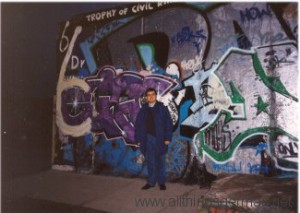
I had only been living in Germany for a year and although I was aware of the significance of whose computer I was looking at in terms of how important the customer was for my employer, only recently have I discovered the significance of the person behind it for the former East Germany’s show business industry. This I have to thank to his autobiography Lippi-Bekenntnisse.
Rather than being just another autobiography of a German celebrity, Lippi-Bekenntnisse gives an inside look into the way that the entertainment business worked in the GDR from someone who was part of it in quite a unique way. Reading it made me realise how little I know about that part of Germany’s history. [Read more…]




